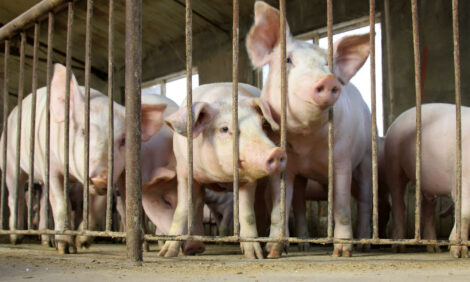



EFSA Salmonella Prevalence Survey
UK - Salmonella is a widespread and naturally occurring zoonotic organism which is commonly found in the natural environment, including insects and wildlife. The levels of Salmonella found in and on UK pigs, by the EU survey of finisher pigs are broadly in line with expectation and similar to levels in previous surveys.The incidence of overall food-borne infections in humans by Salmonella in the UK has been steadily falling from a peak in the mid 1990’s, and are now lower than they were 25 years ago. The UK Health Protection Agency assessments of the various risks of food-borne diseases show that the risk to humans associated with consumption of pig meat products to be lower than for other red meats and considerably less than the disease risks associated with eating poultry products. European food safety figures published in early 2008 also suggest that the risk of Salmonella in humans associated with consumption of pork is similar to that associated with beef and lamb. The levels found on the outside of UK pig carcases are much lower than those found in the intestines, which indicates that hygiene practices in UK abattoirs are working well at limiting any possible contamination.
The levels of Salmonella in pigs are lower in some other EU countries and the British pig industry has been proactive in introducing more effective Salmonella control programmes. However, there remains a lack of science-based and cost-effective tools to tackle the salmonella risks unique to British conditions. The commitment of the British pig industry to high standards of welfare, with widespread usage of organic bedding materials, presents our industry with significantly greater challenges in tackling Salmonella. There is no doubt that separating pigs from their manure in fully slatted pens, as is almost universal in other major pig producing countries, is a significant advantage to those industries in reducing the levels of Salmonella. The mild moist British climate also places it at a disadvantage as drying significantly reduces the survival of Salmonella in buildings and the environment.
Salmonella organisms are heat sensitive and proper cooking of quickly destroys any of these bacteria located on a consumer portion of meat. British pig farming is currently in crisis, as pig feed prices have almost doubled in the last 12 months, while the prices farmers are paid for their pigs at market have increased by less than a quarter. Possible control measures for Salmonella on pig farms that would require investment do not offer the farmer any hope of a useful near-term return, even if that investment could be funded in the current credit crunch situation.
The Pig Veterinary Society is committed to providing the best available advice to farms on protecting the health and welfare of the pigs under their care including advice on the control of Salmonella, which rarely causes disease in pigs despite the levels of carriage found in this survey.
Further Reading
|
|
- Go to our previous news item on Salmonella by clicking here. |







